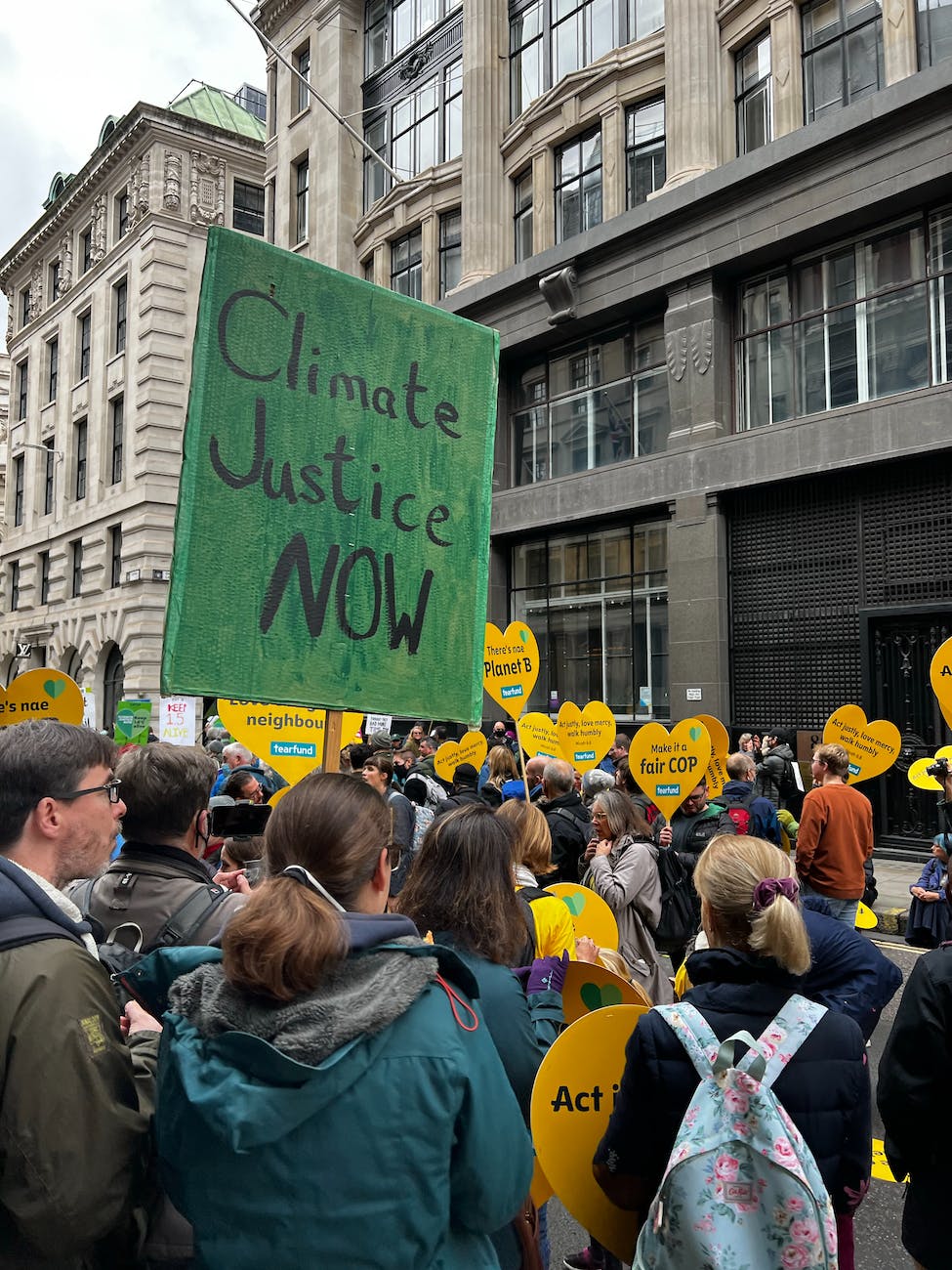Are you ready to tackle the world’s most pressing problems head-on? Look no further! This comprehensive guide is your go-to resource for addressing global issues and making a positive impact. From understanding the importance of taking action for a better future to exploring the challenges and opportunities that lie ahead, this book equips you with practical strategies. It empowers individuals like you to become active participants in creating change on a global scale. With its focus on worldview, ideas, United Nations, and research, this guide provides the necessary tools to navigate the complexities of our interconnected world.
In today’s interconnected world, our worldview has expanded. We can no longer sit on the sidelines. We need to step up and address the urgent issues facing our planet, including opportunities for collaboration with the United Nations. This guide provides valuable insights, backed by authoritative research in science, to help you navigate through complex global problems. So why wait? Let’s dive in and discover how we can make a difference together!
Remember, people, change starts with us – and this guide will help show you ideas and ways on how to help.
Keywords: guide, book
Understanding Global Issues and Their Impact
Global issues, such as the pandemic, have a significant impact on countries worldwide. These complex challenges have far-reaching consequences that go beyond borders and affect human rights and the worldview of nations.
The interconnectedness of the world, driven by advancements in technology and communication, has highlighted the need for a collective approach to tackle global issues. The pandemic has shown that problems in one country can have an impact on others, reinforcing the importance of addressing them together. Climate change, for instance, affects every corner of the globe and poses a threat to human rights, with rising sea levels, extreme weather events, and loss of biodiversity.
It is crucial to consider the pressing issues of health and the pandemic and their effects on various aspects of life. Economically, these challenges can disrupt trade relationships, cause financial instability, and hinder economic growth. Socially, they can exacerbate inequality, lead to conflicts over resources or migration patterns, and threaten human rights. Environmentally, global problems such as deforestation or pollution pose significant threats to ecosystems and endanger our planet’s sustainability.
Addressing global issues related to human rights, worldview, health, and work is not just an option; it is an urgent necessity for sustainable development. The longer we delay taking action, the more severe the consequences for these issues become. Sustainable development aims to meet present needs without compromising future generations’ ability to meet their own needs. By addressing global issues now through sustainable practices and policies, we can ensure a better world for future generations.
To effectively tackle these world problems, global cooperation among countries is essential. This requires collaboration among various stakeholders at local, national, regional, and international levels. Governments play a pivotal role in setting policies and regulations that promote sustainable practices while businesses need to adopt responsible strategies that minimize negative impacts on society and the environment. By working together towards global goals, we can address these challenges more effectively.
Non-governmental organizations (NGOs) also play a vital role in addressing world problems by raising awareness about human rights and advocating for change in countries. These organizations provide support to affected people and communities. Additionally, individuals have a significant role to play in addressing global issues by making conscious choices in their daily lives, such as reducing waste, conserving energy, and supporting ethical businesses.
Learning from Past Experiences in Managing Global Issues
Studying successful case studies of effectively managing past global crises, such as the current pandemic, is crucial in addressing the complex challenges of world problems. By examining these historical examples, we can gain valuable insights into what worked and what didn’t, allowing us to better equip ourselves for our career and develop a more informed worldview.
Understanding the lessons learned from previous efforts to address global issues is essential for shaping our worldview. It enables us to avoid repeating mistakes and identify effective strategies that have worked in the past. For instance, when researching how different countries tackled environmental concerns, we find that those who prioritized sustainable practices and invested in renewable energy sources achieved significant progress in their work. This knowledge can guide our decisions as we strive to combat climate change and other pressing problems in our career.
Recognizing the role of international cooperation in resolving complex problems is key to helping people. Many global challenges, such as the issue of smallpox, require collaboration between nations to achieve meaningful solutions and shape our worldview. Take the example of the eradication of smallpox – a disease that plagued humanity for centuries. Through coordinated efforts by multiple countries, a worldwide vaccination campaign was successfully implemented, leading to its eventual eradication in 1980. This demonstrates how working together on a global scale can yield remarkable results and help people overcome significant issues.
Applying best practices from historical examples to current global challenges allows people to work on solving problems and advancing their careers. For instance, when addressing work-related problems like public health crises such as COVID-19, we can draw upon strategies employed during previous pandemics such as SARS or H1N1 influenza outbreaks. These include early detection and containment measures, widespread testing and contact tracing, as well as clear communication with the public.
To enhance our understanding of past experiences in managing global problems, individuals can enroll in online courses or participate in research initiatives focused on this topic. Several reputable platforms offer comprehensive programs that delve into case studies and provide valuable insights from experts in various fields. By investing time and effort into such resources, individuals can broaden their knowledge base and contribute more effectively towards addressing global problems in their career and work. This is especially important because people play a crucial role in finding solutions to these issues.
Importance of Addressing Global Issues for Global Citizens
Addressing global issues is crucial for the well-being and progress of people, their career, and communities worldwide. By actively engaging with global problems, we can foster empathy, understanding, and a sense of responsibility towards creating a more equitable and sustainable world for all countries to work together.
Benefits to Individuals and Communities
When individuals work to address global problems, they become part of a larger career movement that seeks to improve the lives of people in all countries. By advocating for human rights and gender equality, individuals contribute to building societies where everyone has equal opportunities and access to basic needs.
Moreover, being informed about global issues helps people recognize our interconnectedness as citizens of the world. It allows us to understand that challenges faced by one community can have far-reaching consequences for others. For instance, when we address climate change or poverty in one region, we are ultimately creating a safer and more prosperous environment for all in the workforce.
Promoting Empathy and Understanding
Addressing global problems requires people to step outside their own work and career experiences and perspectives. It encourages us to learn about different cultures, traditions, and ways of life. This exposure fosters empathy as we gain insight into the struggles faced by others around the world.
By developing empathy towards those experiencing human rights violations or gender inequality, we are more likely to take action against these global goals. We become advocates for change because we understand that these problems affect real people with hopes, dreams, and aspirations similar to our own. This understanding can have a significant impact on our work and career.
Everyday Actions Matter
While addressing global issues may seem daunting at first glance, even small everyday actions can contribute significantly to solving pressing world problems. Recycling waste products reduces pollution levels while conserving resources, which is beneficial for the environment and people’s careers. Supporting fair trade initiatives ensures that workers receive fair wages in developing countries, aligning with the goal of creating a more equitable society for all. By incorporating these actions into our daily lives, we can make a positive impact on a global scale and contribute to the betterment of our world.
Furthermore, educating ourselves about global problems equips people with knowledge necessary for effective work. We can engage in conversations with friends and family members about human rights and gender equality, raising awareness and inspiring others to take action towards the goal.
See related: Globalization of markets
Creating a More Equitable and Sustainable World
Addressing global problems is an act of responsibility towards future generations. By actively participating in efforts to combat poverty, climate change, and discrimination, people work towards the goal of creating a more equitable and sustainable world for all.
To achieve positive change, it is important to support organizations that work towards the goals of helping people and solving problems. Donating to charities that promote human rights or gender equality can make a significant impact. Volunteering our time or skills allows us to directly contribute towards positive change. Here is a list of ways to support these organizations.
Identifying and Prioritizing Global Issues
Examining methodologies used to identify and prioritize pressing global challenges at work. Creating a list of goals to address these challenges and involving people in the process.
It is crucial for people to first identify and prioritize the most pressing challenges in order to achieve their goal. Various methodologies are employed by people to accomplish this task, ensuring that limited resources are allocated effectively. One commonly used approach is the compilation of comprehensive lists that outline the major global issues faced by countries worldwide. These lists serve as a starting point for people to understand the breadth and depth of the problems at hand.
Discussing the criteria for determining which issues require immediate attention and resources is important for people who want to achieve their goals. Creating a list can help prioritize these issues effectively.
Once global issues have been identified, it becomes essential to determine which ones require immediate attention and allocation of resources. To make such decisions, a list of specific criteria are often considered. For instance, issues that pose an immediate threat to human lives or have far-reaching consequences tend to be prioritized over others. Factors such as urgency, severity, geographical scope, and potential for positive impact on multiple Sustainable Development Goals (SDGs) play a significant role in determining priority areas.
In the context of prioritizing solutions to complex problems, it is crucial to have a list of evidence-based options. This helps in making informed decisions and achieving the goal of effectively addressing these challenges.
In order to effectively prioritize goals and address global challenges, evidence-based decision-making must be at the forefront. Relying on empirical data, scientific research, expert opinions, and statistical analysis helps ensure that solutions are grounded in reality rather than speculation or personal biases. This approach promotes transparency, accountability, and increases the likelihood of successful outcomes by informing policymakers about where resources should be directed.
Suggesting frameworks for assessing potential risks associated with different types of global issues is a goal. Here is a list of frameworks to consider.
Assessing potential risks associated with various global issues is a critical step in their identification and prioritization process. The goal is to use frameworks that provide valuable guidance in evaluating these risks systematically. One example is using a risk matrix that considers both the probability of an event occurring and its potential impact. By categorizing risks into high-, medium-, and low-priority levels, decision-makers can allocate resources accordingly to achieve their goal. Frameworks that consider the interconnectedness of global issues and their potential cascading effects can help identify hidden risks and prevent unintended consequences.
Taking Action: Strategies to Address Global Issues
Addressing global issues requires a comprehensive approach that combines effective strategies, collaboration, innovation, and individual action. By employing various methods such as advocacy, education, policy change, and innovation, we can effectively tackle different types of global challenges and achieve our goals.
Effective Strategies for Addressing Global Issues
There are several ways we can take action to achieve our goal. Here are some effective strategies that can make a significant impact towards reaching our goal.
- Advocacy: Campaigning for change is a powerful tool in addressing global issues. By raising awareness and mobilizing support, advocacy efforts can influence policymakers and drive necessary reforms.
- Education: Knowledge is key to addressing global challenges. Educating individuals about the causes and consequences of these issues helps create informed citizens who are more likely to engage in meaningful actions.
- Policy Change: Governments play a crucial role in addressing global issues through policy reform. By advocating for policies that prioritize sustainability and social justice, we can create lasting change on a systemic level.
- Innovation: Embracing technological advancements and fostering innovation is essential in finding sustainable solutions to global problems. From renewable energy technologies to innovative healthcare services, innovation drives progress towards a better future.
The Importance of Collaboration and Partnerships
No single entity or organization can solve global issues alone; collaboration is key to success. Building partnerships among governments, NGOs, businesses, and communities amplifies the impact of collective efforts.
Collaboration allows for the sharing of resources, expertise, and best practices while avoiding duplication of work. It fosters cooperation between diverse stakeholders with complementary skills and perspectives.
By working together towards common goals, we can pool our strengths and address complex challenges more effectively than if we were acting individually.
Harnessing Technology and Innovation
Technology has revolutionized the way we address global issues by providing us with tools to overcome barriers and find innovative solutions. From harnessing renewable energy sources to leveraging data analytics for informed decision-making, technology plays a vital role in creating sustainable change.
Innovative approaches such as blockchain for transparent supply chains, artificial intelligence for efficient resource management, and telecommunication services for remote healthcare are just a few examples of how technology can drive positive impact.
By embracing technological advancements and fostering innovation, we can unlock new possibilities and overcome global challenges more effectively.
Taking Action at Local and Global Levels
Addressing global issues requires action at both local and global levels. While governments, international organizations, and businesses have significant roles to play, individuals also have the power to make a difference.
At the local level, individuals can start by making conscious choices in their daily lives. This includes supporting ethical businesses, reducing waste, conserving resources, and advocating for sustainable practices within their communities.
On a global scale, individuals can take action by supporting organizations that work towards addressing global issues. Whether it’s through volunteering time or donating funds to initiatives aligned with their values, individual contributions add up to create meaningful change.
Overcoming Challenges in Addressing Global Issues
Addressing global issues is no easy task. It requires tackling a wide range of obstacles that hinder progress towards sustainable development, climate change mitigation, and the achievement of other pressing goals.
Identifying Common Obstacles
Several common obstacles often arise. Lack of funding stands as a significant barrier, limiting the resources available to tackle complex problems effectively. Moreover, political barriers can impede progress due to differing priorities among nations and conflicting interests.
Global issues such as food insecurity, pandemics, climate change, cybersecurity threats, corruption, violence, and extreme poverty require coordinated efforts from many countries. The lack of cooperation can hinder progress in finding comprehensive solutions.
Strategies for Overcoming Challenges
To overcome these challenges and make meaningful strides in addressing global issues, various strategies can be employed:
- Raising Awareness: Increasing public awareness about the gravity and urgency of global problems is crucial. By educating individuals about the interconnectedness of these issues and their impact on daily lives, a sense of collective responsibility can be fostered.
- Building Coalitions: Collaboration between governments, non-governmental organizations (NGOs), businesses, and communities is vital for effective problem-solving. Building coalitions allows for shared knowledge and resources while leveraging diverse perspectives.
- Leveraging Existing Resources: Rather than reinventing the wheel with each new challenge that arises globally, it is essential to identify existing resources that can be utilized. This includes tapping into established frameworks like the United Nations Sustainable Development Goals (SDGs) or international agreements on climate action.
- Diplomacy and Negotiation: Resolving conflicts related to global issues often requires diplomacy and negotiation between nations with differing viewpoints or conflicting interests. Diplomatic efforts can help bridge gaps and find common ground for collective action.
The Role of Long-Term Commitment
Addressing global issues demands long-term commitment and perseverance. Many problems cannot be solved overnight, and progress may require sustained efforts over extended periods. It is crucial to recognize that tackling complex challenges requires patience, adaptability, and continuous engagement.
By combining the strategies mentioned above with a steadfast dedication to sustainable development, economic growth, and the well-being of all nations, we can make meaningful progress in addressing pressing global issues. Only through united efforts can we overcome obstacles and create a more prosperous future for generations to come.
Conclusion: Empowering Individuals to Make a Difference
In conclusion, addressing global issues is crucial for creating a better world. By understanding the impact of these issues and learning from past experiences, we can begin to prioritize and take action. It is important for global citizens to recognize their role in addressing these challenges and empower themselves to make a difference.
To address global issues effectively, individuals must first identify and prioritize the most pressing problems. This involves understanding the interconnected nature of these issues and considering their potential consequences on a global scale. By doing so, we can focus our efforts on areas that require immediate attention.
Taking action is the next step in addressing global issues. Strategies such as advocating for policy changes, supporting sustainable practices, and promoting education can all contribute to positive change. It is essential for individuals to actively participate in initiatives that align with their values and leverage their unique skills and resources.
However, it is important to acknowledge that there will be challenges along the way. Overcoming these obstacles requires resilience, collaboration, and innovation. By staying informed, seeking partnerships with like-minded individuals or organizations, and adapting strategies when necessary, we can navigate through difficulties more effectively.
In order to address global issues successfully, it is crucial to foster an authoritative tone while using simple language that resonates with a wide audience. By incorporating examples, statistics, case studies, and social proofs where appropriate, we can strengthen our arguments and provide tangible evidence of the importance of taking action.
Ultimately, each individual has the power to make a difference in addressing global issues. Whether through small everyday actions or larger-scale initiatives, every contribution matters. Together, we have the ability to create meaningful change that will positively impact current and future generations.
FAQs
How can I contribute as an individual?
As an individual, you can contribute by educating yourself about global issues and finding ways to integrate sustainable practices into your daily life. Additionally volunteering your time or supporting organizations working towards addressing global issues can make a significant impact.
What are some examples of global issues?
Global issues include but are not limited to climate change, poverty, inequality, access to education and healthcare, human rights violations, and environmental degradation.
How can I prioritize which global issues to address?
Prioritizing global issues requires an understanding of their urgency and potential impact. Consider factors such as the scale of the problem, its consequences on humanity and the environment, and the feasibility of making a difference in that particular area.
Can one person really make a difference in addressing global issues?
Absolutely! Every individual action counts towards creating collective change. By joining forces with like-minded individuals or organizations, your efforts can be amplified and contribute to meaningful progress.
How do I stay motivated when addressing global issues seems overwhelming?
It is important to remember that even small actions can have a ripple effect. Celebrate your achievements along the way and seek support from communities working towards similar goals. Stay informed about success stories and remind yourself of the positive impact you are making through your actions.



